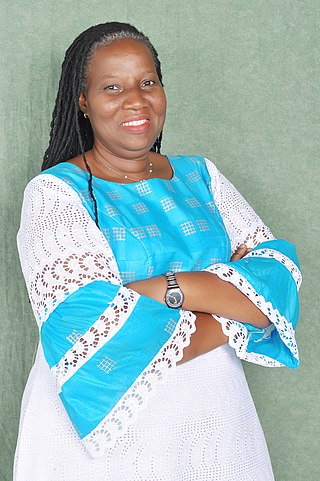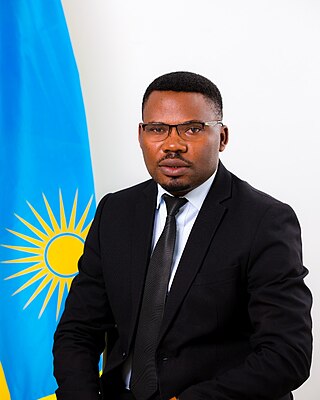Related Research Articles

Barbara Jean Hammer was an American feminist film director, producer, writer, and cinematographer. She is known for being one of the pioneers of the lesbian film genre, and her career spanned over 50 years. Hammer is known for having created experimental films dealing with women's issues such as gender roles, lesbian relationships, coping with aging, and family life. She resided in New York City and Kerhonkson, New York, and taught each summer at the European Graduate School.

Gwendolyn Audrey Foster is an experimental filmmaker, artist and author. She is Willa Cather Professor Emerita in Film Studies. Her work has focused on gender, race, ecofeminism, queer sexuality, eco-theory, and class studies. From 1999 through the end of 2014, she was co-editor along with Wheeler Winston Dixon of the Quarterly Review of Film and Video. In 2016, she was named Willa Cather Endowed Professor of English at the University of Nebraska at Lincoln and took early retirement in 2020.

Raoul Peck is a Haitian filmmaker of both documentary and feature films. He is known for using historical, political, and personal characters to tackle and recount societal issues and historical events. Peck was Haiti's Minister of Culture from 1996 to September 1997. His film I Am Not Your Negro (2016), about the life of James Baldwin and race relations in the United States, was nominated for an Oscar in January 2017 and won a César Award in France. Peck's HBO documentary miniseries, Exterminate All the Brutes (2021), received a Peabody Award.

The cinema of Lebanon, according to film critic and historian Roy Armes, is the only other cinema in the Arabic-speaking region, beside Egypt's, that could amount to a national cinema. Cinema in Lebanon has been in existence since the 1920s, and the country has produced more than 500 films.
Anne Aghion is a French-American documentary filmmaker. She is a Guggenheim Fellow, a Mac Dowell Colony Fellow and a Rockefeller Foundation Bellagio Center Fellow.
Cynthia Wade is an American television, commercial and film director, producer and cinematographer based in New York City. She has directed documentaries on social issues including Shelter Dogs in 2003 about animal welfare and Freeheld in 2007 about LGBT rights as well as television commercials and web campaigns. She has won over 40 film festival awards, won an Oscar in 2008, and was nominated for her second Oscar in 2013.

Louise Mushikiwabo is the fourth and current Secretary General of the Organisation internationale de la Francophonie. She previously served as the Minister of Foreign Affairs and Cooperation of Rwanda from 2009 to 2018. She also served as Government Spokesperson. She had previously been Minister of Information.
The Rwanda Film Festival, also known as Hillywood, is a film festival held annually in July in Kigali, Rwanda. The Rwanda Film Festival gained worldwide recognition over the past years and has become one of Africa's major film events.

Judy Kibinge is a Kenyan filmmaker, writer and producer. She has produced, written and directed a number of films, best known are Something Necessary (2013), Dangerous Affair (2002), and Project Daddy (2004). She is also known for establishing Docubox, a documentary film fund for African filmmakers to help them produce and distribute their film. She released her first film, The Aftermath, in 2002 and critics have said that she uses her films to impart stories about Kenya, particularly those about women and others that are typically not told in mainstream Hollywood.

Tope Oshin is a Nigerian television and film director, producer and casting director, listed as one of the most influential Nigerians in film in 2019. In 2015 Pulse magazine named her as one of "9 Nigerian female movie directors you should know" in the Nollywood film industry. and in March 2018, in commemoration of the Women's History Month, Tope was celebrated by OkayAfrica as one of the Okay100 Women. The interactive campaign celebrates extraordinary women from Africa and the diaspora making waves across a wide array of industries, while driving positive impact in their communities and the world at large.

Netalie Braun is an Israeli poet, writer and filmmaker. She won the 2017 Ophir Award for the best short documentary film.
Cinema of Sudan refers to both the history and present of the making or screening of films in cinemas or film festivals, as well as to the persons involved in this form of audiovisual culture of the Sudan and its history from the late nineteenth century onwards. It began with cinematography during the British colonial presence in 1897 and developed along with advances in film technology during the twentieth century.
Eunice Wanjiru Njoki, known as Mammito, is a Kenyan stand-up comedian, actress, writer and an mcee. She grew up in the slums of Kibera.
Marie Clémentine Dusabejambo is a Rwandan filmmaker.

Pauline Mvele is an actress, director and screenwriter from Burkina Faso. Mvele is known for producing documentaries, and currently lives in Gabon. Her documentaries focus on issues such as HIV/AIDS in Africa, and the mistreatment of widows and prisoners in Gabon. In 2014 her film won best film at the Burundi Film Festival.
Francois L. Woukoache, is a Belgian–Cameroonian filmmaker and screenwriter. He has made about twenty films and a series of children's stories and of several television programs.

Edouard Bamporiki is a Rwandan politician and artist. Bamporiki served in Rwandan cabinet as States Minister in charge of culture in the Ministry of Youth and Culture until 5th May 2022
Lague Byiringiro is a Rwandan professional footballer who plays as a forward for Ettan Fotboll club Sandvikens and the Rwanda national team.

Kasirye Martin, commonly known as Mc Tino is a Rwandan artist and journalist, MC and Dejeey. He used to emcee different music festivals include Primus Guma Guma Super Star. He was the MC in all the big concerts that happened in Rwanda, among them are prepared by MTN Rwanda.

Iradukunda Grace Divine, commonly known as DJ Ira born September 7, 1997 in Gitega, Burundi to Mbonimpa Juvénal and Ndayizeye Béatrice is a Burundian disc jockey, business woman and fashionista based in Rwanda.
References
- ↑ Emmy, Nsengiyumva (12 March 2019). "Iserukiramuco "Urusaro International Women Film Festival" ryasojwe mu birori bibereye ijisho (Amafoto)". IGIHE (in Kinyarwanda). Retrieved 27 November 2019.
- 1 2 3 "Rwanda Urusaro film festival submissions open". BizCommunity. 8 July 2019. Retrieved 27 November 2019.
- ↑ Kantengwa, Sharon (29 September 2019). "Cinéfemmes and the rise of female film makers". The New Times. Retrieved 28 November 2019.
- ↑ "Rwanda: les cinéastes africaines à l'honneur lors du festival Urusaro". RFI Afrique (in French). 12 October 2019. Retrieved 28 November 2019.
- ↑ Kantengwa, Sharon (20 September 2019). "Urusaro International Women Film Festival returns". The New Times. Retrieved 27 November 2019.
- ↑ Opobo, Moses (26 March 2017). "Urusaro International Women Film Festival: Celebrating women filmmakers". The New Times. Retrieved 28 November 2019.